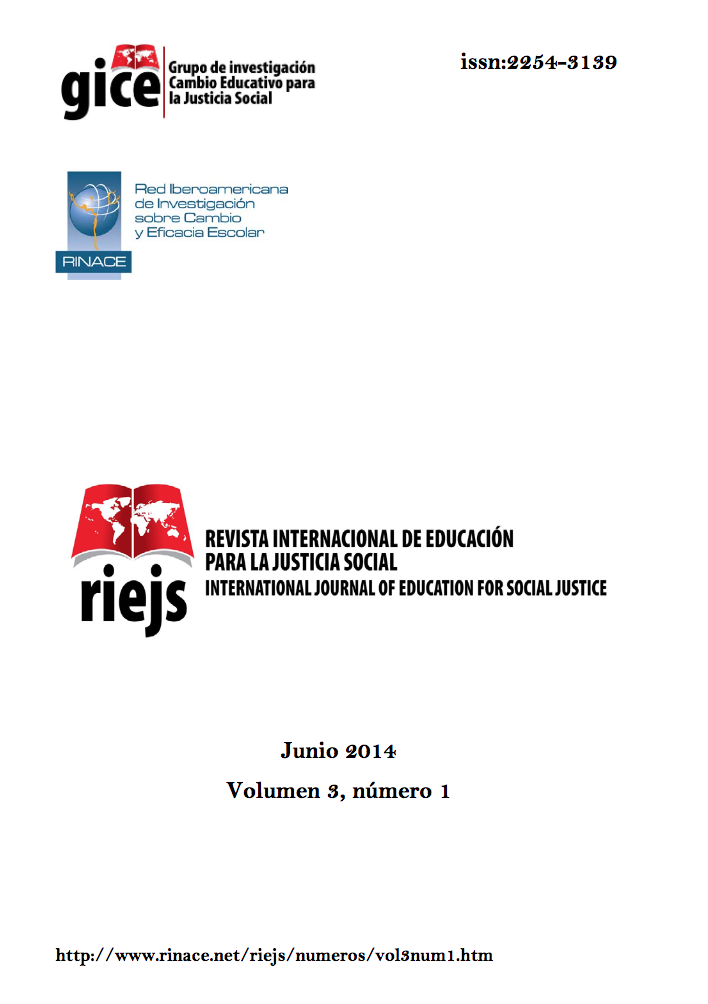Stories and simulations to work on social justice in science education since early childhood
Keywords:
Social justice, Early childhood education, Story telling, Simulation, Science education.Copyright (c) 2015 Revista Internacional de Educación para la Justicia Social (RIEJS)

This work is licensed under a Creative Commons Attribution-NonCommercial-NoDerivatives 4.0 International License.
Abstract
Introduction: Social Justice is an increasingly relevant concept in today's world, where social inequality grows among constant technological advances and global economic effects. It is therefore necessary to balance progress and social compromise. Regarding education, this challenge shall encourage educators to teach values through transversal competences. The main objective of this article is to consider whether a tale and a simulation game about the environment can be appropriate resources to acquire social justice values in the early childhood science classroom. Methods: We have analyzed teachers' responses on the value of these kinds of resources. We have also designed a tale inspired on Cinderella, which focuses on gender equality and is aimed at children's participation. In addition, we have created a simulation game that deals with natural resources, equity, and poverty. Both games were used with kindergarten children. In both cases, changes in the students' ideas were observed. Results: Teachers' reviews on tales were more positive than on games. Students' views changed thanks to the use of the tale and the game. Discussion: Both resources allowed children to develop transversal competences. Students developed more egalitarian ideas on gender through the participative tale. The game fostered their compromise towards equity.
